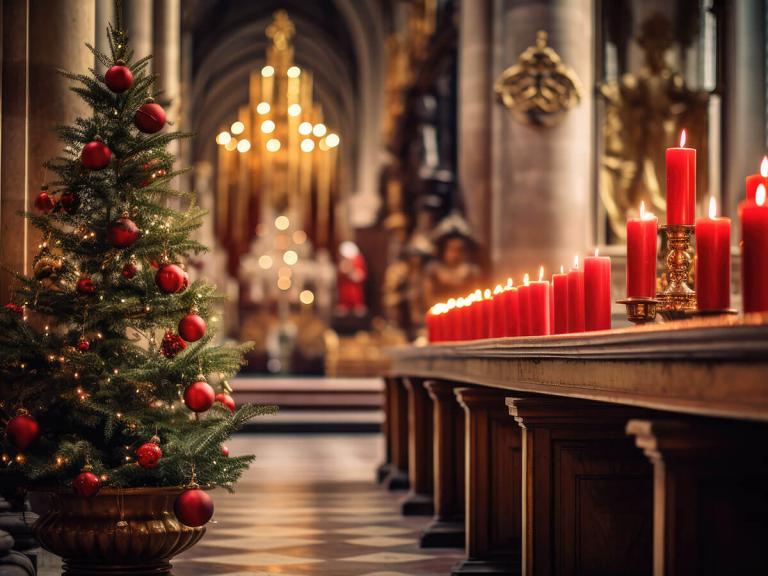
Christian leaders of various Christian denominations in Bethlehem are fielding criticism after canceling the town’s annual Christmas celebration as a mark of “solidarity” to the people of Gaza. The controversy began when city officials in Bethlehem, the famous birthplace of Jesus and site of the first Christmas, announced via Facebook that Christmas decorations would be dismantled as an act of “solidarity with our people in Gaza.” A spokesperson for the city called the festivities “not appropriate” during the escalating war between Israel and Hamas. “[P]eople are not really into any celebration, they are sad, angry and upset; our people in Gaza are being massacred and killed in cold blood. Therefore, it is not appropriate at all to have such festivities while there is a massacre happening in Gaza and attacks in the West Bank,” said the spokesperson.
However, in addition to municipal leaders, faith leaders joined in the consensus to halt festivities. In a statement from the interdenominational Patriarchs and Heads of Churches in Jerusalem, the group also shared his growing concern for the humanitarian situation in Gaza. “Since the start of the War, there has been an atmosphere of sadness and pain. Thousands of innocent civilians, including women and children, have died or suffered serious injuries. Many more grieve over the loss of their homes, their loved ones, or the uncertain fate of those dear to them. Throughout the region, even more, have lost their work and are suffering from serious economic challenges.” The statement encouraged believers to “stand strong with those facing such afflictions” and “to focus more on the spiritual meaning of Christmas.”
Although it is being framed as a concern for the situation in Gaza, this cancellation highlights the lessening Christian influence in the Savior’s birthplace. Bethlehem is in the West Bank, which is controlled by the Palestinian Authority and is largely Muslim. The Catholic Register reported that in 1950, 86 percent of the people living in Bethlehem and the surrounding villages were Christians. By 2016, that number was below 12 percent. In 2019, Open Doors USA noted the violence and pressure that Christians face in the region. The Palestinian Authority has made Islam the official religion of Gaza, although other faiths like Christianity and Judaism are supposed to receive the same respect. All Palestinians are required to list their religious affiliation on their identification forms.
A Palestinian Christian by the name Lara wrote about the decision to cancel Christmas for Premier Christianity. While she stated she agreed with the sentiment of “mourn with those who mourn,” as found in Romans 12:15, she called the statement’s politicization of the issue a “missed opportunity. “The problem is, when the announcement was made that the annual Christmas display would be cancelled, our leaders said it was exclusively in honour of Palestinian ‘martyrs’ in Gaza and the West Bank,” she wrote, adding, “It is a tragic, missed opportunity for the Church to show that it values all life – across every ethnicity and religion, without any discrimination or prejudice. A much more Christ-like statement would have highlighted solidarity with the devastating losses of lives on all sides.” She also wondered if fear might be an underlying factor. “We should remember the context – the vast majority of Palestinians are Muslims, who do not celebrate Christmas. And so I can’t help but wonder how much freedom churches have in the region to be as transparent to their beliefs and callings and whether the decision to cancel all festive displays came from a place of complete agency or more of a place of fear.” As of this writing, Israel and Hamas have extended a temporary cease-fire as more hostages are being returned to Israel.


